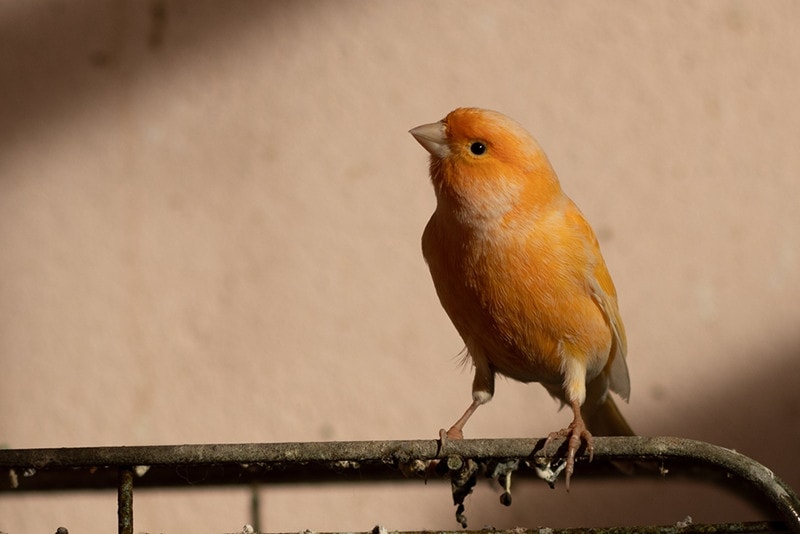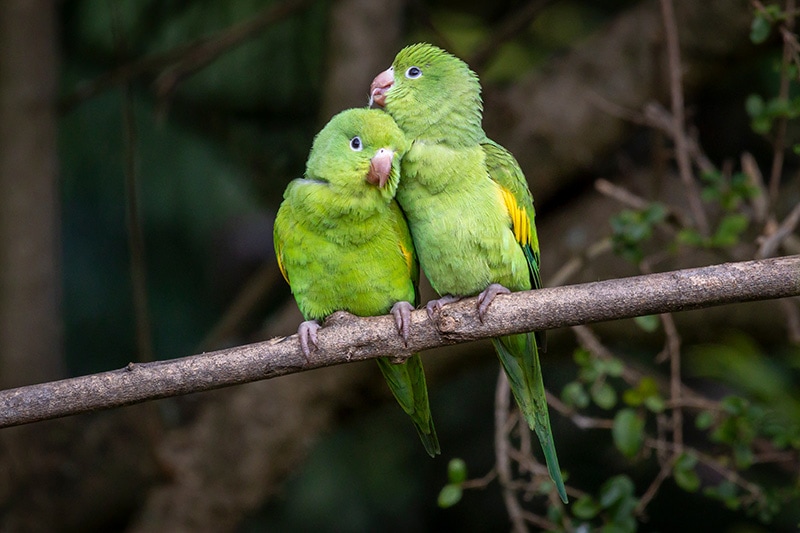How to Protect Birds from Cats (11 Tips & Tricks)
Updated on
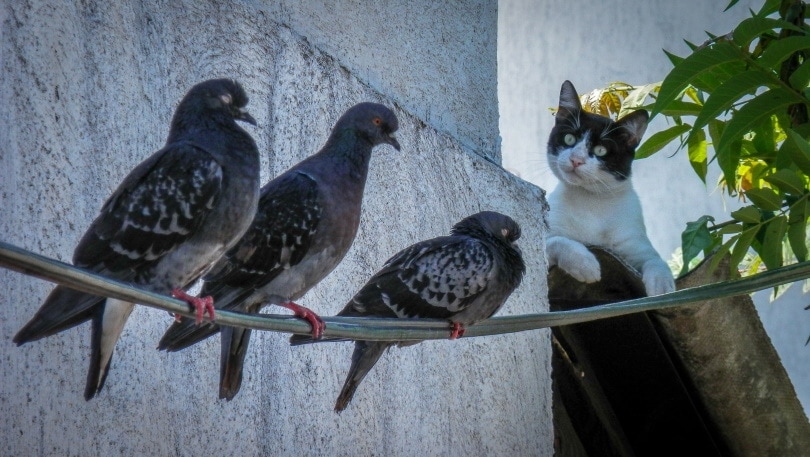
Cats pose a risk to not just wild birds but the birds they share a home with. If you own both cats and birds, you need to do everything you can to protect them from one another.
Keep reading to find our tips and tricks for protecting your backyard and pet birds safe from your natural predator kitty.
How to Protect Wild Birds from Cats
Your outside cat has a lot to thank you for. They’re probably in far better shape than their indoor-only counterparts and likely happier, too. Being outside provides many opportunities for enrichment and stimulation.
The problem is that an outdoor cat poses many risks for the wildlife that would call your backyard home. This includes birds and insects like butterflies and moths, which may affect your area’s biodiversity. While you may not be able to protect the small critters from your kitty, we can provide some tips for protecting your backyard birds.
1. Keep Your Cats Indoors
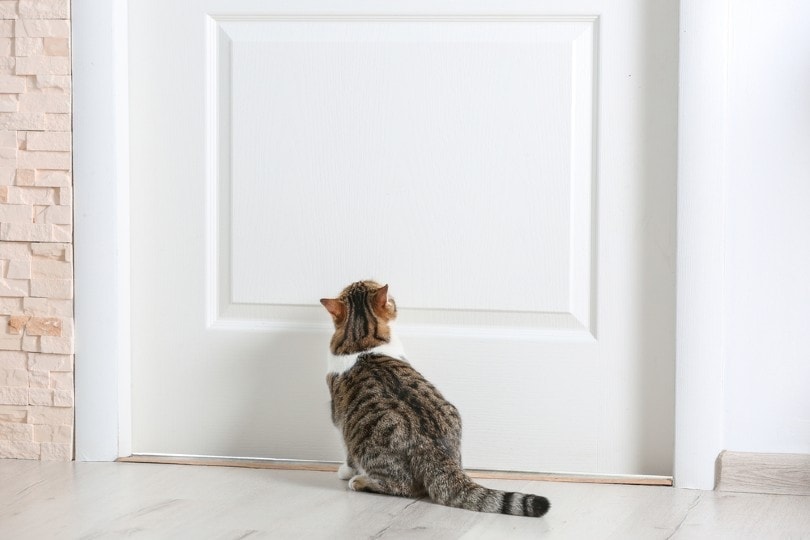
The only surefire way to prevent your cats from hunting wild birds is to keep them indoors. If you absolutely must let your kitty outside, consider investing in an outdoor catio. These cat patios provide outdoor access, but since they’re caged in, your pet won’t be able to prey on any backyard visitors. You could also take your cat outside and put them on a harness and leash. However, you shouldn’t leave them unattended on a leash, so this method may not be as convenient.
2. Consider Your Bird Feeder & Bath Placement
The place in your yard you place your bird feeder could be putting them at risk of becoming your cat’s next target. Try to keep your bird feeders and birdbaths at least ten feet away from any potential hiding spots your kitty could be camouflaging itself in, such as shrubbery. At the same time, place the feeders in an area of your yard where the birds can have cover. This will give them some time to fly away if they see a cat coming their way.
3. Install the Right Birdhouse
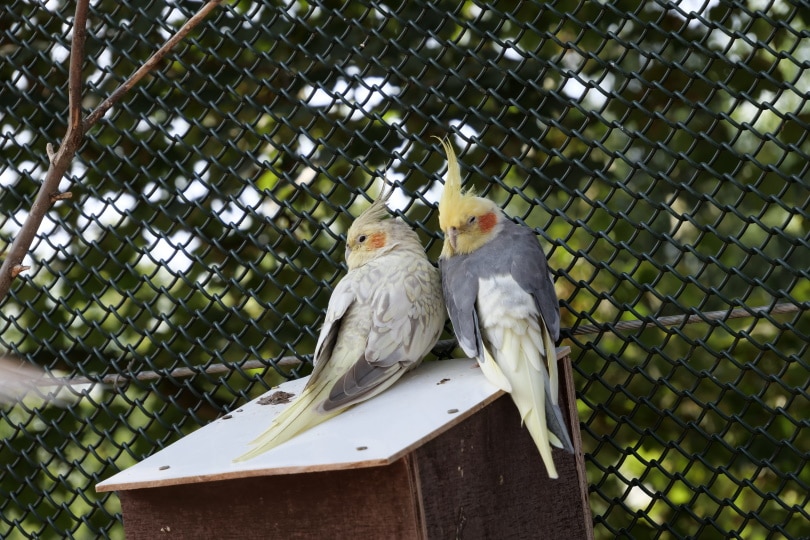
A catproof birdhouse should have a steep roof and no perches to deter feline predators. Nesting boxes should be placed strategically in your yard. Please don’t put them in areas your cats frequent or spots that’ll make it easy for cats to get in. Ensure the holes in the nesting box are just the perfect size for the bird species using it.
The perfect birdhouse location is in a clearing, far away from fences or other infrastructure your kitty could climb. The higher the pole your birdhouse sits on, the better. This will make it challenging for your cats to climb and give the birds plenty of time to fly away.
4. Use a Collar
A cat collar with bells can warn birds of a cat’s approach. Though birds don’t typically associate the sound of a bell with an incoming predator, even the color of your cat’s collar can be enough to catch the eye of an unsuspecting bird.
5. Don’t Provide Praise
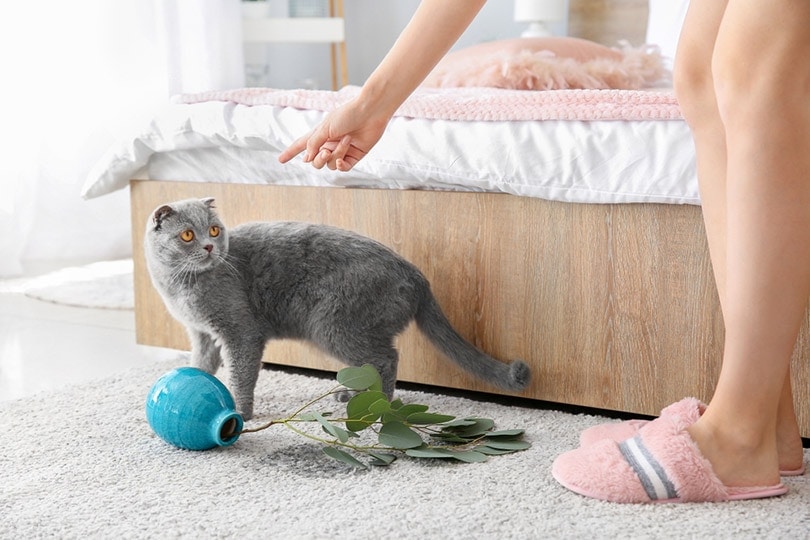
Don’t offer treats or praise if your kitty brings you a dead bird as a gift, even if the bird in question is highly invasive. Positive reinforcement will encourage your pet to continue to prey on unsuspecting birds. Furthermore, since cats can’t distinguish between invasive or native species, it’s impossible to control which they kill and which they let live.
6. Keep Kitty’s Claws Trimmed
Keeping your cat’s nails trimmed will not only protect you from scratches, but it can make hunting birds more challenging for your outdoor kitty. Cats use their claws to climb trees, where they may hide and wait for unsuspecting birds to fly by. We do not recommend declawing your pet, but keeping their nails trimmed will reduce the effectiveness of their most dangerous weapon.
How to Protect Pet Birds from Cats
Even though cats and birds are timeless enemies, they can live harmoniously in the same house. If you own both feathered and feline friends, there are some things you can do to ensure they both stay safe from one another.
7. Get the Right Cage
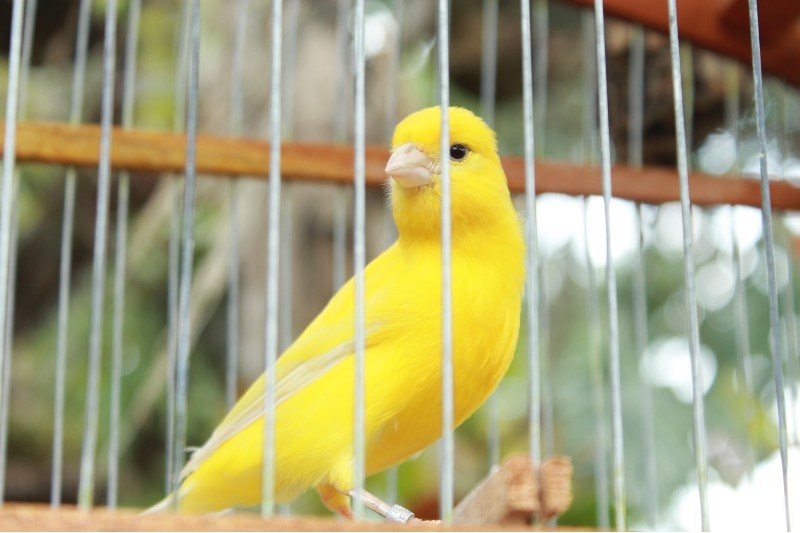
Your bird’s cage is its home and will provide protection from curious kitties. It should be heavy and sturdy enough that it can’t be knocked over. Smaller bird species can even be housed in a hanging cage.
The cage needs locks to prevent your bird from escaping and keep your cat from opening the door and getting access to your bird. In addition, the bar spacing shouldn’t allow space for your cat’s paws to fit.
We also recommend using a cage cover at night to help your bird feel safe instead of worrying it’s being watched by a cat all night. Make sure your cover is made of breathable material.
8. Create a Safe Space for Your Bird
Your bird should have its own room that your cat can’t access when you’re not home. When you cannot supervise, keep the door to your bird’s room closed. Even if you take all the proper precautions with cage placement and size, cats are clever and curious little critters and can find ways to get to your bird.
9. Use Scent Deterrents

Cats notoriously hate the smell of citrus, so you can use this to your advantage when protecting your bird. Place lemon or orange peels around the cage to discourage your kitty from getting too close. We do not recommend using essential oils as birds have susceptible respiratory systems, and oils can do more harm than good.
10. Provide Plenty of Distractions
Your cat might be less likely to want to use your bird as a plaything if it has plenty of its own toys to play with. Toys are great distractions and will help channel your cat’s natural predatory urges. Toy mice, feather wands, or motorized toys are great as they all simulate real prey. Food puzzles are another excellent distraction as they will redirect your cat’s energy to something they’ll immediately get a reward from.
11. Get That Catio
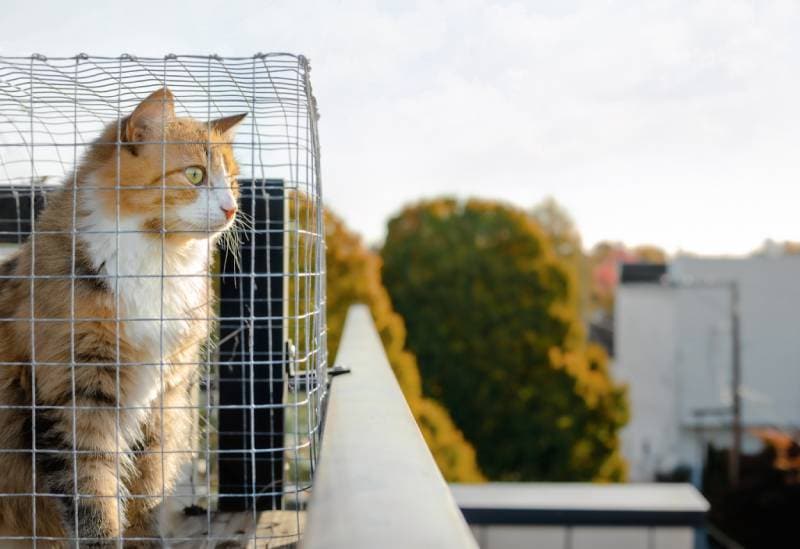
Remember how we mentioned investing in a catio to protect your backyard birds from your outdoor cats? Catios are also fantastic for keeping your indoor cats entertained and providing enrichment. You don’t need to spend hundreds of dollars on a custom-built catio. Chewy has some fantastic deals on outdoor playpens for under $200. We like the Coziwow Outdoor Play Pen if you’re comfortable working with power tools to put it together. Otherwise, the collapsible playpen tent from Outback Jack is a quick and painless option.
Do Birds Pose a Risk to Cats?
While cats clearly have the size advantage over birds, some species of birds can do serious harm to an unsuspecting cat. Larger species of parrots have strong beaks and claws that can do damage, especially if they catch your kitty off guard and don’t let it have a chance to defend itself.
Conclusion
Cats may be a significant predator of wild birds in North America, but that doesn’t mean you have to have a birdie graveyard at home. Our tips above should help keep your backyard birds as safe as possible. In the same breath, cats and birds can coexist in the same home, but as a responsible pet owner, you need to take steps to ensure their safety.
See also:
Featured Image Credit: GoranBGD, Pixabay



